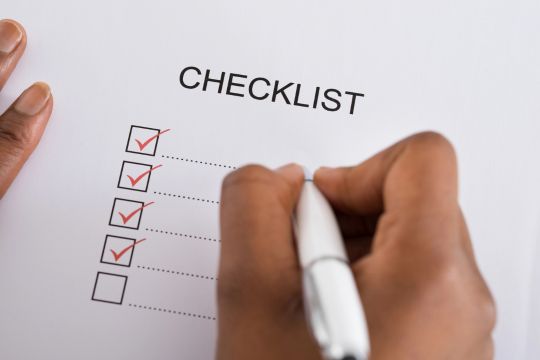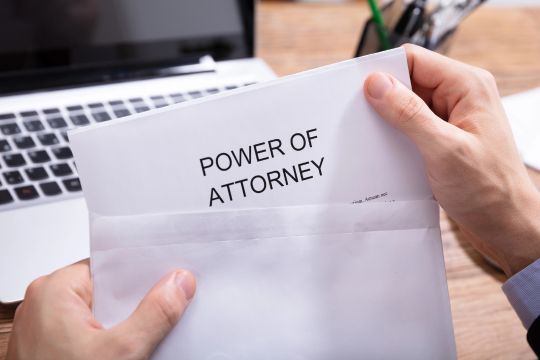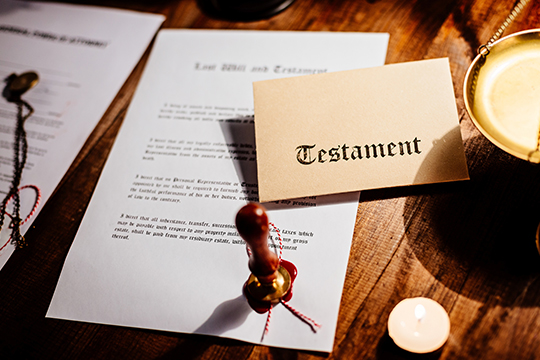I am the executor of an estate. Now what?
The death of a loved one can be a difficult and emotional time and the administration of an estate
can seem overwhelming. We answer some common questions for executors of an estate.
What is my role as an executor of an estate?
When you make a will, you appoint an executor. The role of the executor is to manage and administer the estate after your death. An estate will include all assets held by a person including houses, land, cars, money, shares, and personal items but usually exclude any superannuation.
The executor's role is extensive but includes:
- Attending to funeral arrangements;
- Notifying any financial institutions or other relevant organisations of the person's death;
- Ascertaining the size of the estate and taking control of all assets;
- Obtaining a Grant of Probate or Letters of Administration if required;
- Resolving all estate disputes and attending to payment of all liabilities;
- Distributing assets to the beneficiaries; and
- Investing or managing assets to be held on behalf of beneficiaries.

What is a grant of Probate?
When a person dies leaving a will, the executor may be required to obtain a Grant of Probate from the Supreme Court of Victoria. A Grant of Probate is a court order confirming the validity of the will and will allow the executor to administer the estate.
If a person does not leave a will, or the will does not appoint an executor, an application can be made to the Supreme Court of Victoria for Letters of Administration. This is a similar court order which will allow the applicant to administer the estate.
Making application to the Supreme Court for either a Grant of Probate or Letters of Administration can be confusing and difficult without proper advice and support. Our lawyers can guide you through the process, ensuring your application is correct and processed as quickly as possible.
Do I need a Grant of Probate?
Whether or not you will be required to obtain a Grant of Probate (or Letters of Administration) will depend on the assets of the deceased; what type of asset they were, their value and how they were owned. Assets usually fall into the following categories:
- Real property
- Bank accounts
- Shares
- Aged care bonds or deposits
- Cars
- Personal items
The assets may be owned jointly with another person or in the deceased's sole name. Assets which were owned jointly with another person who is still alive may be able to be transferred to that person without the need for a Grant of Probate (or Letters of Administration).
Our lawyers will help you determine whether a Grant of Probate (or Letters of Administration) are necessary for your estate.

How do I apply for a Grant of Probate or Letters of Administration?
Although the procedure for obtaining a Grant of Probate (or Letters of Administration) of a will is relatively straightforward, most people will choose to have a lawyer assist them in their application. Currently, 95% of all probate applications processed by the Supreme Court are made by lawyers or trustee companies on behalf of executors.
In order to prepare their application, the executor must first ascertain what the assets and liabilities of the estate are.
Once this information has been obtained, the executor must advertise their intention to apply on the Supreme Court Probate Online Advertising System. After a period of 14 days, the executor must then file their application at the office of the Registrar of Probates. The application includes five separate court documents, which must be in the form prescribed by the Supreme Court.
The application is then reviewed by a Registrar of Probates and, if approved, the Grant of Probate or Letters of Administration will be issued by the Court.
How long will it take to finalise the estate?
Each estate is unique and the time from death to a final distribution to beneficiaries varies accordingly. The main variables in determining how long an estate will take to finalise are:
- The size of the estate and the types of assets and liabilities held by the deceased;
- Whether a Grant of Probate or Letters of Administration is necessary and if so, the time taken by the Supreme Court to process the probate application;
- How quickly the assets can be realised and transferred;
- Whether or not there is a dispute.
Our lawyers can provide you with a realistic timeframe within which you can expect your estate to be administered.
Contact our Probate Lawyer.
Our probate lawyers will help you navigate the complexities of being the executor to an estate. Getting help from an expert can make a painful process as painless as possible.
Julie Chambers.
Practice Group Leader.
- Wills & Estate Planning
- 03 9890 3321
- Email Address: j.chambers@robinsongill.com.au
Kelly Brown.
Associate.
- Property and Wills & Estates
- 03 9890 3321
- Email Address: k.brown@robinsongill.com.au
Mikayla Shaw.
Lawyer.
- Wills & Estate Planning
- 03 9890 3321
- Email Address: m.shaw@robinsongill.com.au
Jaymee Wilson.
Legal Clerk.
- Wills, Estate & Probate
- 03 9890 3321
- Email Address: j.wilson@robinsongill.com.au
What is there is a Dispute?
Despite best intentions, disputes often arise within estates. The dispute may be between executors or may be a challenge to the will by a beneficiary. In the event of a dispute, it is essential that all parties seek legal advice, so that the dispute can be resolved as quickly and cost-effectively as possible.
Disputes can often be resolved by the parties without the need for court proceedings.
Learn more about when a will can be challenged.
Resources & FAQs
Answers to common questions in
relation to the expertise.
Executor duties
An executor is the person named in the deceased testator’s Will as the person they want to be in charge of dealing with their estate after their death.
Testamentary Capacity and Soundness of Mind – Recent New South Wales Court of Appeal decision
A recent case in the New South Wales Court of Appeal has considered the circumstances in which a person may lack the capacity to make a Will.
Deceased Estates – what do you need to do?
If you know someone who has passed away, there is an important series of steps to be followed to deal with what they leave behind.











